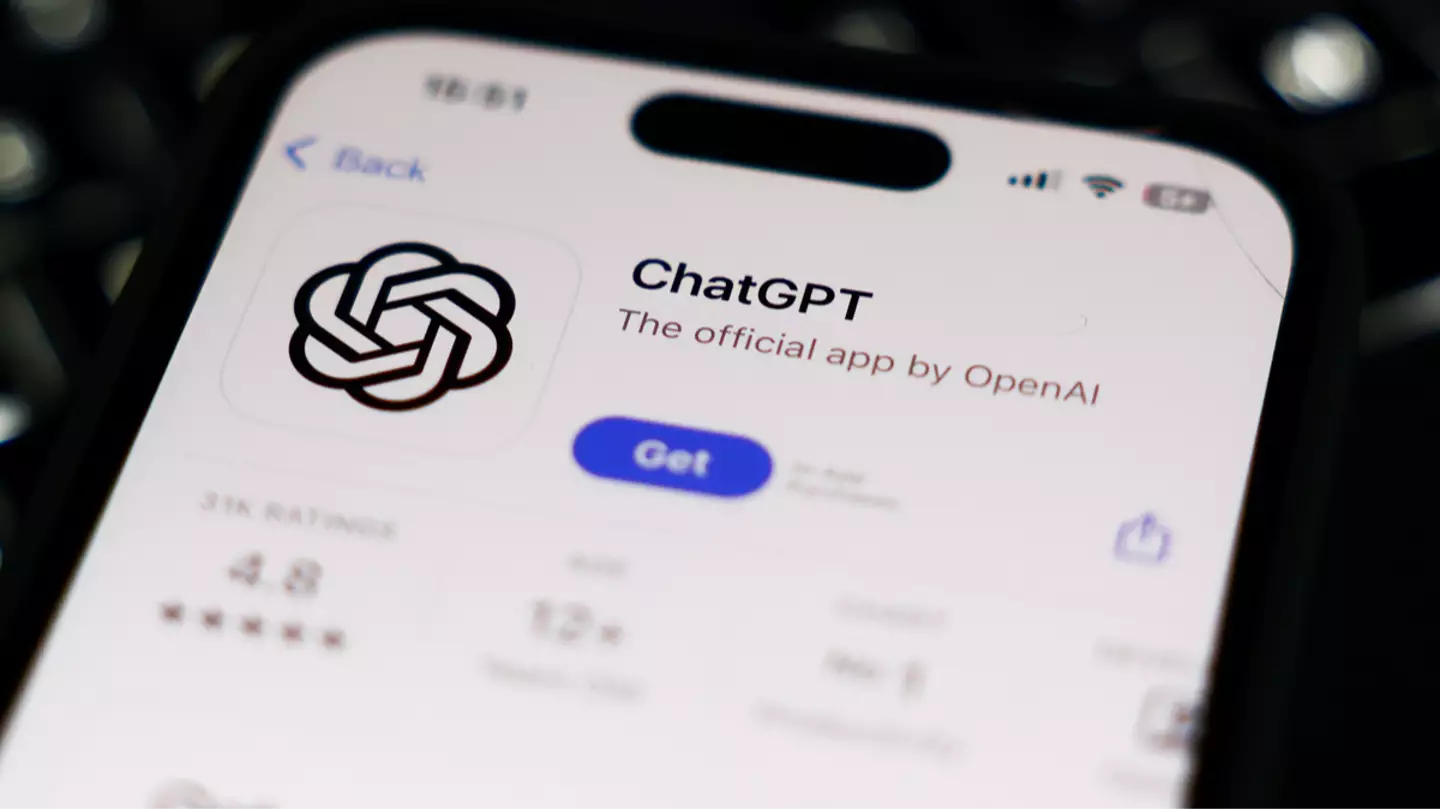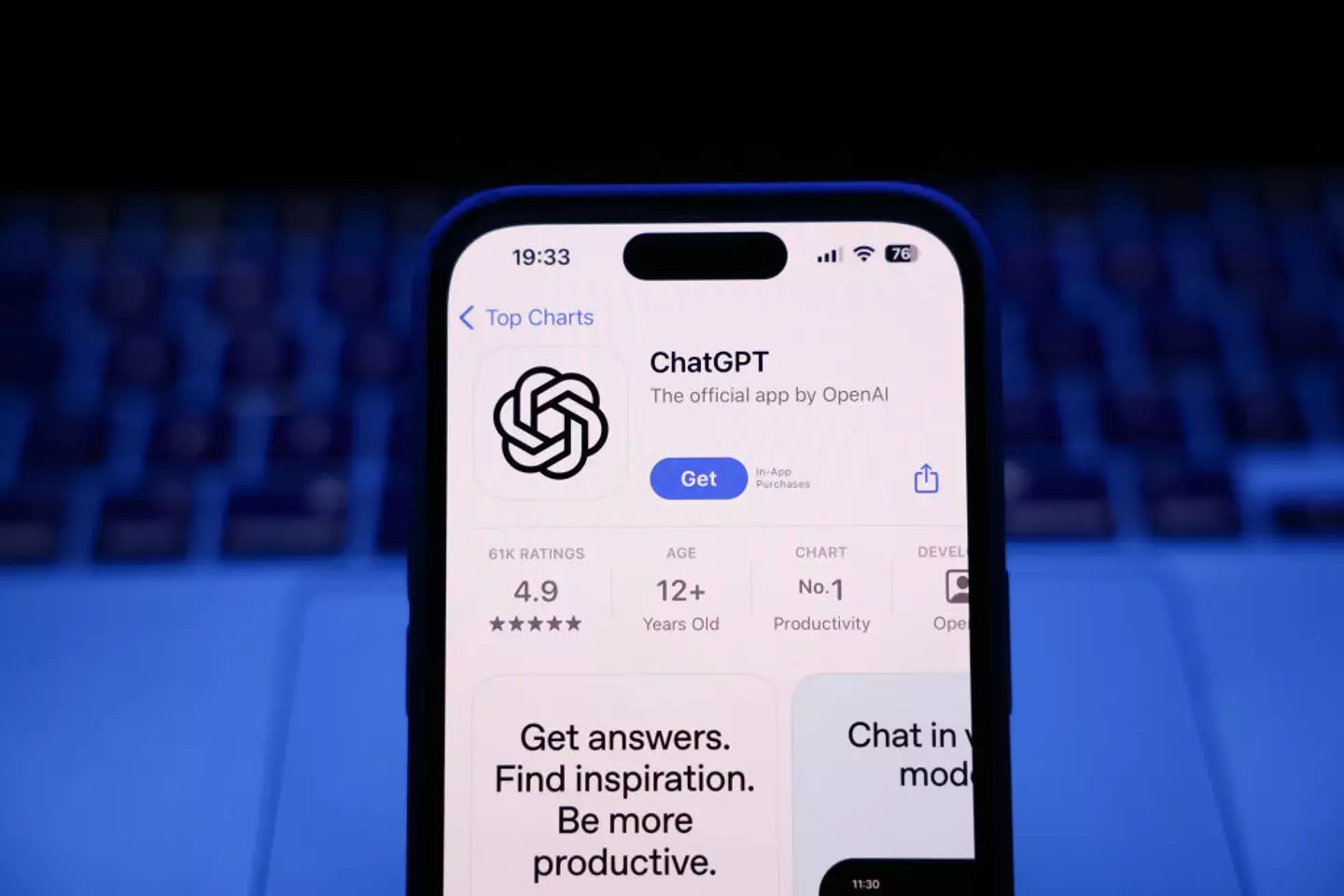
ChatGPT has made artificial intelligence a part of daily life, with people using it to set up dating profiles, cheat on essays and rewrite their CVs. But has it gone too far?
Ever since OpenAI released its chatbot, people have been wary about just what its capabilities are, and what it means for the future.
I mean, we’ve all seen Terminator, right?
And while it's great for helping you figure out how to respond to that passive aggressive work email, scientists have recently come to some troubling conclusions about what it's doing to our brains.
Advert
A new study from researchers at MIT’s Media Lab has found some scary information about just how far it could impact us.
The paper began by dividing 54 people between the ages of 18 to 39 in Boston, into three groups and asking them to write numerous SAT essays over a four month period. One group used ChatGPT, another Google’s search engine, and the third weren't allowed either when writing the essays.

Researchers then hooked up the groups to an electroencephalogram (EEG) to measure and record the electrical activity in their brains.
Of all three groups, ChatGPT users were found to display the lowest level of brain engagement and they also ‘consistently underperformed at neural, linguistic, and behavioral levels'.
It also found that the users became more and more lazy as the essays went on, resulting to copy and pasting text directly from ChatGPT by the end of the trial.
When the ChatGPT users were asked to start writing essays just using their own brain power, they 'showed reduced alpha and beta connectivity, indicating under-engagement'.
So, what does this mean for us?
Lead author Nataliya Kosmyna shared that long-term brain development may be negatively impacted by the use of AI.
“What really motivated me to put it out now before waiting for a full peer review is that I am afraid in 6-8 months, there will be some policymaker who decides, ‘let’s do GPT kindergarten.’ I think that would be absolutely bad and detrimental,” she said as per TIME. “Developing brains are at the highest risk.”
The EEGs showed that the AI group showed low executive control and attentional engagement, and by the third essay, they’d essentially allow ChatGPT do all of the work for them.

"It was more like, ‘just give me the essay, refine this sentence, edit it, and I’m done',” Kosmyna explained.
Conversely, the people that were unable to use any tool to aid with their essays showed the highest neural connectivity, especially in areas of creativity ideation, memory load, and semantic processing.
They were also more engaged and curious.
The Google Search group also displayed active brain function, leaving only the AI users as having bad results across the board.
They also couldn’t remember what the essays were about, with Kosmyna explaining: “The task was executed, and you could say that it was efficient and convenient. But as we show in the paper, you basically didn’t integrate any of it into your memory networks.”
As for how it could impact students and young minds, they shared: “Education on how we use these tools, and promoting the fact that your brain does need to develop in a more analog way, is absolutely critical.
“We need to have active legislation in sync and more importantly, be testing these tools before we implement them.”
When people online caught wind of the research results, they were critical of AI as a whole, and those who use it.
One person on X said: "We are in a battle for our humanity here and y'all are willing to melt your brains to not have to think about writing a couple emails."
Another wrote: "Great so now ChatGPT is not only writing my emails but also quietly stealing my brain cells cool cool."
Someone else scathed: "NPCs gonna NPC."
UNILAD reached out to OpenAI for comment.
Topics: Artificial Intelligence, Science, US News, Education
